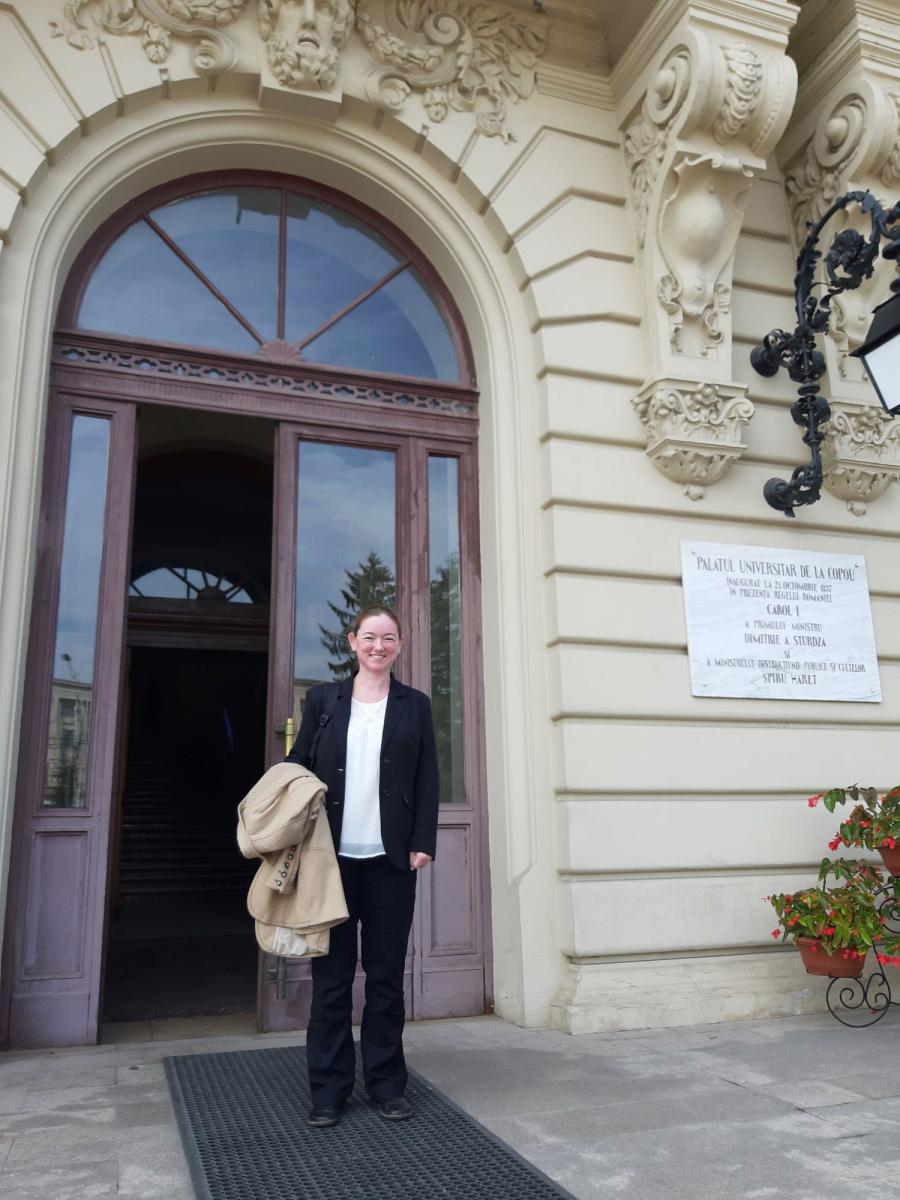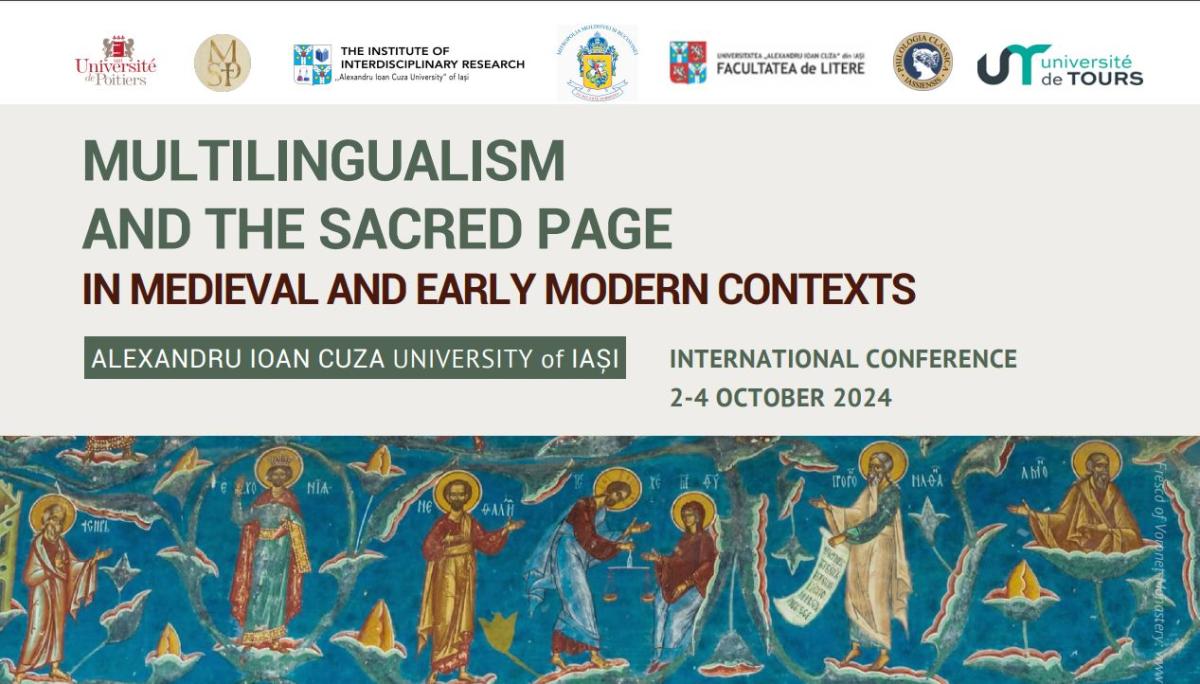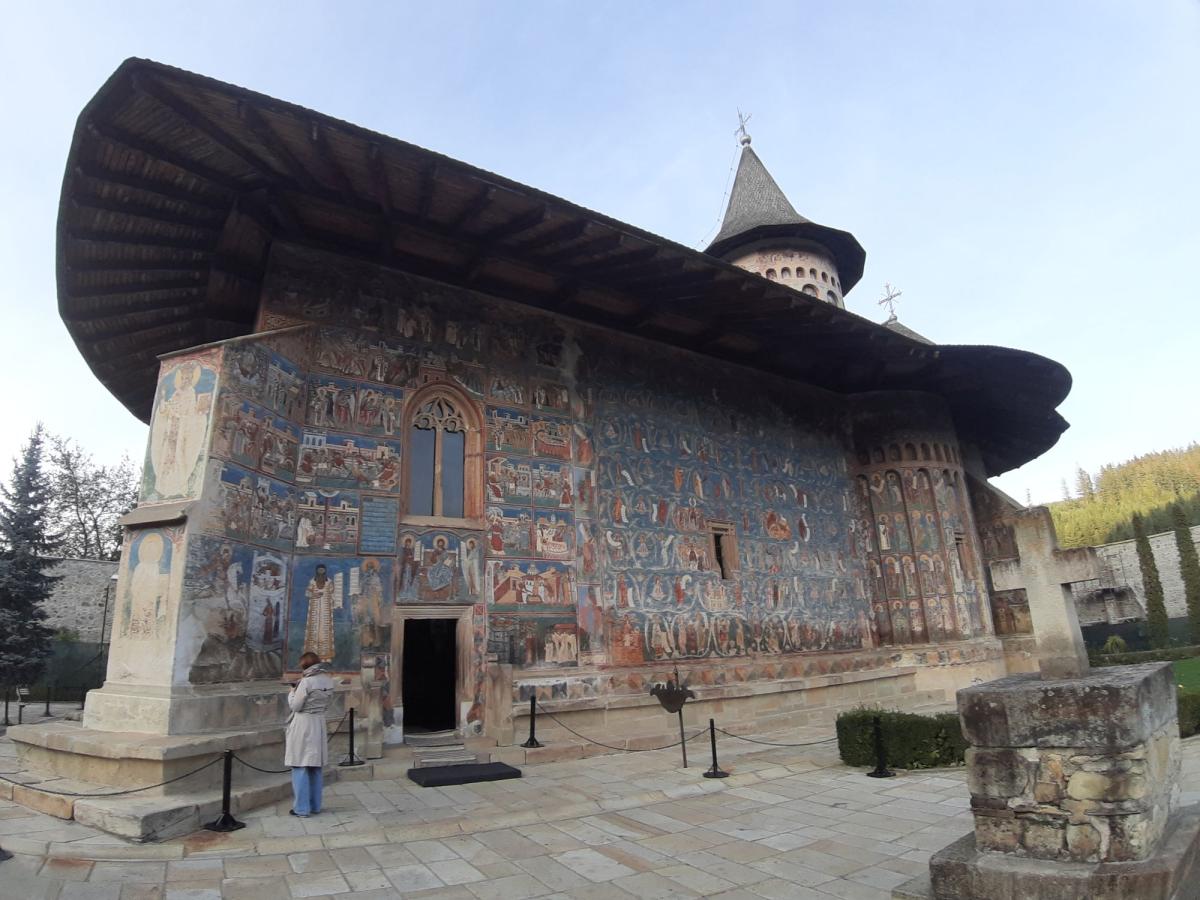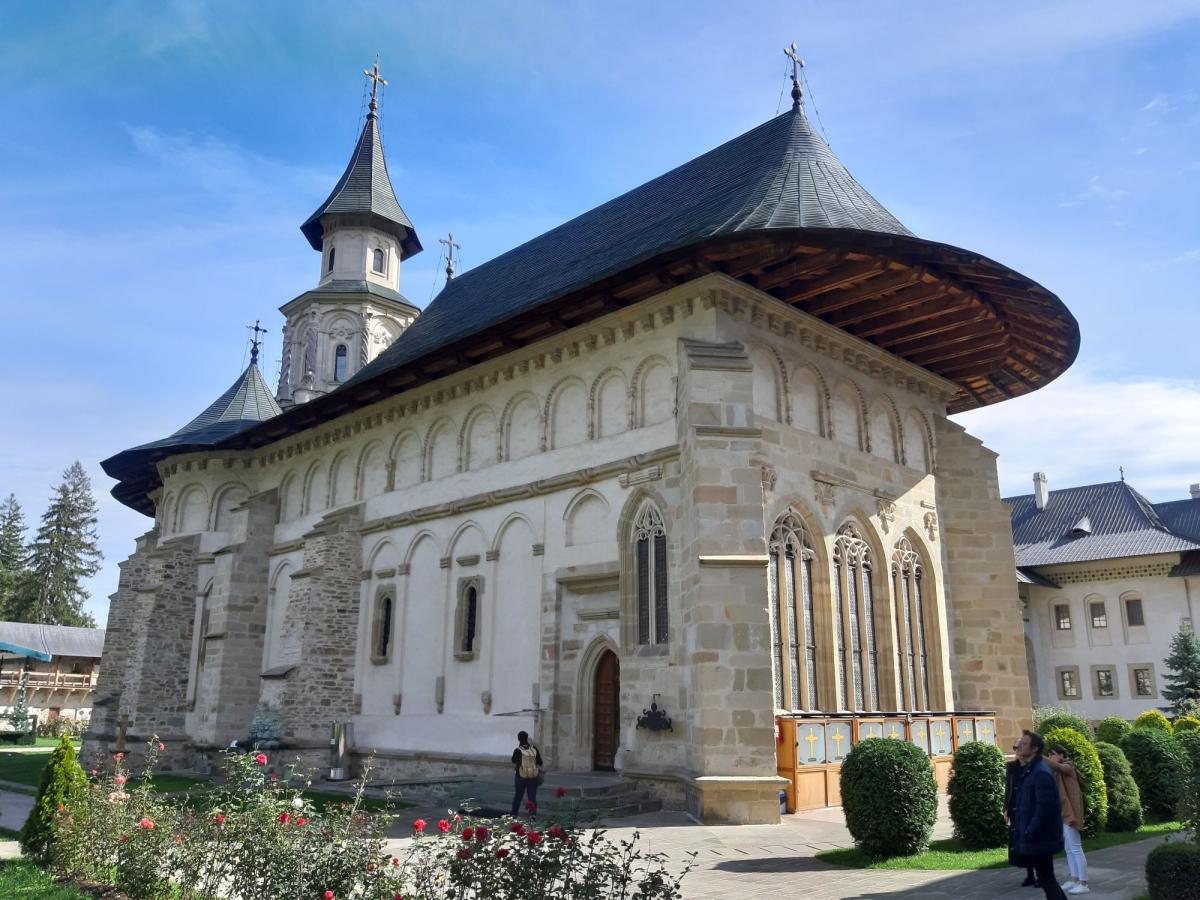
International conference on medieval Bible translations and multilingualism in Iaşi
An international conference on Multilingualism and the Sacred Page in Medieval and Early Modern Contexts was held at the Alexandru Ioan Cuza University (Universitatea "Alexandru Ioan Cuza" din Iași) from 2 to 4 October 2024, which was attended by Ágnes Korondi, researcher of the Fragmenta et Codices Research Group of the HNMPCC NSZL HUN-REN–NSZL.
The event in Jászvásár (Iași) explored the problems of translation history and theory of bilingual and multilingual biblical texts in medieval and early modern Europe. One of the main aims of the event was to familiarise the students of the humanities at the University of Iași with the subject of multilingualism and with foreign experts who study it.
The academic conference was co-organised by the Faculty of Humanities and the Institute for Interdisciplinary Research of the Alexandru Ioan Cuza University and the PSalteRATIO project of the Centre d'études supérieures de civilisation médiévale of the University of Poitiers. The event was also supported by the Metropolis of Moldavia and Bucovina.
 Main topics of the conference and the presentation of Ágnes Korondi
Main topics of the conference and the presentation of Ágnes Korondi
The speakers at the conference from Romania, France, England, Poland, the Czech Republic and Ireland examined the problems of research and publication of manuscripts containing sacred or related texts in two or more languages. Elizabeth Solopova, a researcher at the University of Oxford and an expert on Wycliffe's translation of the Bible, analysed the nature of Middle English biblical manuscripts in her plenary presentation, pointing out that the creators of these manuscripts often used texts outside the modern biblical canon to create more eclectic compilations that resembled a complete Bible.
Ágnes Korondi examined the Hungarian glosses of the sermons for the Easter period of the 15th century Hungarian collection of sermons known as Sermones dominicales, which has survived in two copies. She pointed out the relationship of these glosses with other contemporary Hungarian pericope translations. The title of the presentation was Translating the Passion: Hungarian Glosses to Biblical Pericopes and Sermons for the Paschal Season in a 15th Century Latin Sermon Collection.
The conference organisers also included two workshops, which provided the conference's undergraduate students with an insight into digital humanities approaches to medieval Bible translations. One workshop was given by Ileana Sasu and Élisa Marcadet, researchers from the University of Tours, on the challenges of online publishing of medieval French and English lyrical psalm translations, and the other was led by Solopova, focusing on the online edition of Wycliffe's Middle English Bible translation.
There was also a round table discussion, chaired by Vladimir Agrigoroaei, Ana Dumitran and the main organiser of the conference, Ana-Maria Gînsac, on the results of the research project Re-evaluating the Sixteenth-Century Romanian Psalters, which will be published in a volume. The project included several participants from the conference, including Ágnes Korondi, who examined the question of the possible Hungarian source of the early Romanian psalter translations.
Study trips and international cooperation
The participants visited the monasteries of Putna, Sucevița and Voroneți, which offered a rich cultural experience with their 15th and 16th century wall paintings, early books and liturgical objects. The discussions and exchanges between researchers from different disciplines during the conference also provided an opportunity to plan further international cooperation.






